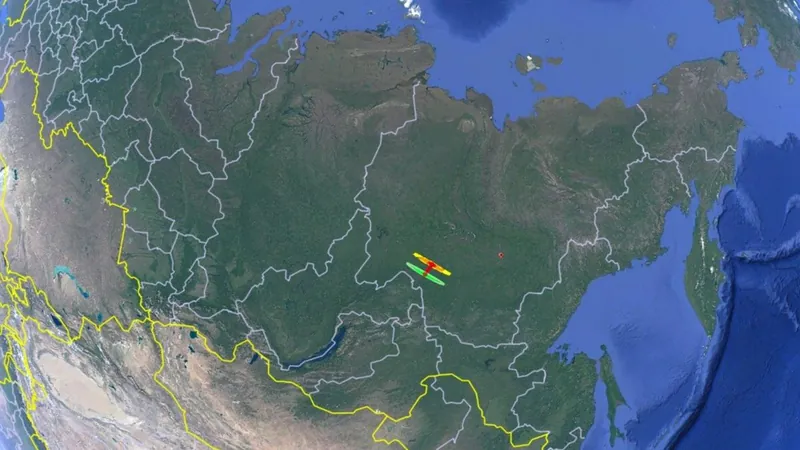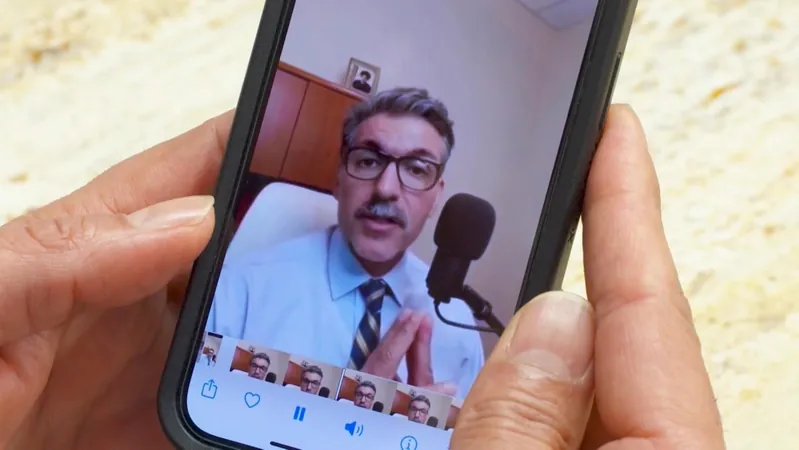
Asteroid Surprise! Tiny Space Rock Detected Just Hours Before Earth Encounter – Will it Spark a Fireball?
2024-12-03
Author: Benjamin
Tiny Asteroid Detected on Collision Course
A tiny asteroid was detected on a collision course with Earth today, December 3. Measuring approximately 27 inches (70 centimeters) across, this little space rock is expected to disintegrate harmlessly in Earth's atmosphere around 11:15 a.m. ET (1615 GMT), creating what astronomers are calling a "nice fireball" over northern Siberia, according to the European Space Agency.
Discovery and Historical Significance
Discovered at the last minute by astronomers at the Kitt Peak National Observatory in Arizona, the asteroid is designated as C0WEPC5. It has now made history as the fourth “imminent impactor” of 2024—a classification given to asteroids found just hours before their expected impact. In total, this incident marks only the 11th confirmed imminent impactor to date (the status of a 12th is still pending, as noted by physicist Richard Moissl).
Previous Hasty Detections in 2024
Remarkably, this isn't the first hurried detection of a space rock this year. Earlier, the asteroid 2024 UQ was spotted on October 22 by the Asteroid Terrestrial-impact Last Alert System (ATLAS) in Hawaii, only two hours before it burned up harmlessly over the Pacific Ocean. The first imminent impactor of 2024, identified as 2024 BX1, was a 3.3-foot (1 meter) asteroid that lit up the sky over Berlin in January. Most spectacularly, the second impactor, 2024 RW1, created an impressive display when it exploded over the Philippines on September 4.
Vigilance of Global Space Agencies
The ongoing vigilance of global space agencies, including ESA and NASA, is crucial in tracking these near-Earth objects. They utilize extensive networks of sensors to monitor the cosmos and identify asteroids that may pose a risk to our planet. Programs such as the ATLAS survey and the Catalina Sky Survey are essential for cataloging the countless asteroids and other celestial bodies that orbit or pass near Earth.
Conclusion and Future Monitoring
As we continue into 2024, it's clear that the skies hold many surprises. Stay tuned, as astronomers work round the clock to keep us informed about these cosmic events—because with asteroids, it’s not just a rock in the sky, but a reminder of the wonders (and dangers) of the universe above!









 Brasil (PT)
Brasil (PT)
 Canada (EN)
Canada (EN)
 Chile (ES)
Chile (ES)
 España (ES)
España (ES)
 France (FR)
France (FR)
 Hong Kong (EN)
Hong Kong (EN)
 Italia (IT)
Italia (IT)
 日本 (JA)
日本 (JA)
 Magyarország (HU)
Magyarország (HU)
 Norge (NO)
Norge (NO)
 Polska (PL)
Polska (PL)
 Schweiz (DE)
Schweiz (DE)
 Singapore (EN)
Singapore (EN)
 Sverige (SV)
Sverige (SV)
 Suomi (FI)
Suomi (FI)
 Türkiye (TR)
Türkiye (TR)